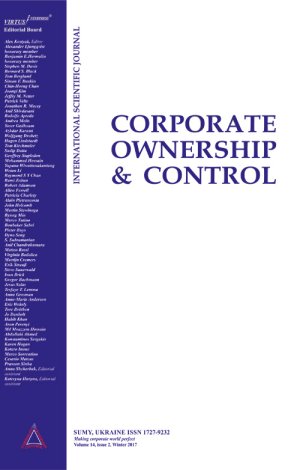
-
 Journal menu
Journal menu

- General information
- Editorial Board and External Reviewers
- Journal Policies
- Publication Ethics and Malpractice Statement
- Instructions for authors
- Paper reviewing
- Article processing charge
- Feedback from stakeholders
- Journal’s Open Access statement
- Order hard copies of the journal
- 50 most cited papers in the journal
RELATIONAL KNOWLEDGE AND GOVERNANCE CHOICES: A VIEW WITHIN RESOURCE-BASED THEORY PERSPECTIVE
Download This ArticleAbstract
The paper is a theoretical paper, focused on the analysis of the intangible and cognitive content of inter-firm relationships, according to Knowledge Based View (Kogut and Zander, 1992; Foss, 1993, 1996; Nonaka, 1994; Grant, 1996, Teece, 1998). In particular, the issue is examined taking into account two main approaches on learning and knowledge creation: the exploration/exploitation model (March, 1991) and the model based on the concept of absorptive capacity (Cohen and Levinthal, 1990). These approaches are analyzed critically, with specific reference to inter-firm collaboration, taking into account also contributions within the so called Relational View (Gulati, 1998; Dyer and Singh, 1998; Kale and Singh, 1999, 2007; Kale, Dyer and Singh, 2002), according to which the social aspect of the relationship between the firm and its external environment is a central question. The basic assumption is that external relationships can generate knowledge and competences that are potentially able to generate relational rents (Dyer and Singh, 1998), important not only for the single firm but also for the whole aggregate (alliance, rather than network) it belongs to. Then a systemic logic comes out, according to which partners interact, exchange knowledge and resources, through different governance models, in order to reduce relational costs and gain the most intense synergic effects. The problem is, however, that such a profitable collaboration does not seem to be so widespread and in some cases networks fail because of the lack of coordination mechanisms. From this point of view, a governance entity can be necessary or at least appropriate (Kale, Dyer and Singh, 2002). Therefore, the aim of the paper is to verify: the role of relational knowledge within and between networks, in order to gain sustainable competitive advantage. In this direction, also the relationship between knowledge view and resource-based theory is analyzed, considering the former to complete and enrich the latter; if governance choices regarding relational knowledge can be themselves sources of competitive advantage.
Keywords: Resource-Based Theory, Firm, Relational Knowledge, Governance Choices
How to cite this paper: Della Corte V., & Sciarelli, M.(2011). Relational knowledge and governance choices: A view within resource-based theory perspective. Corporate Ownership & Control, 9(1-3), 392-404. https://doi.org/10.22495/cocv9i1c3art3

















